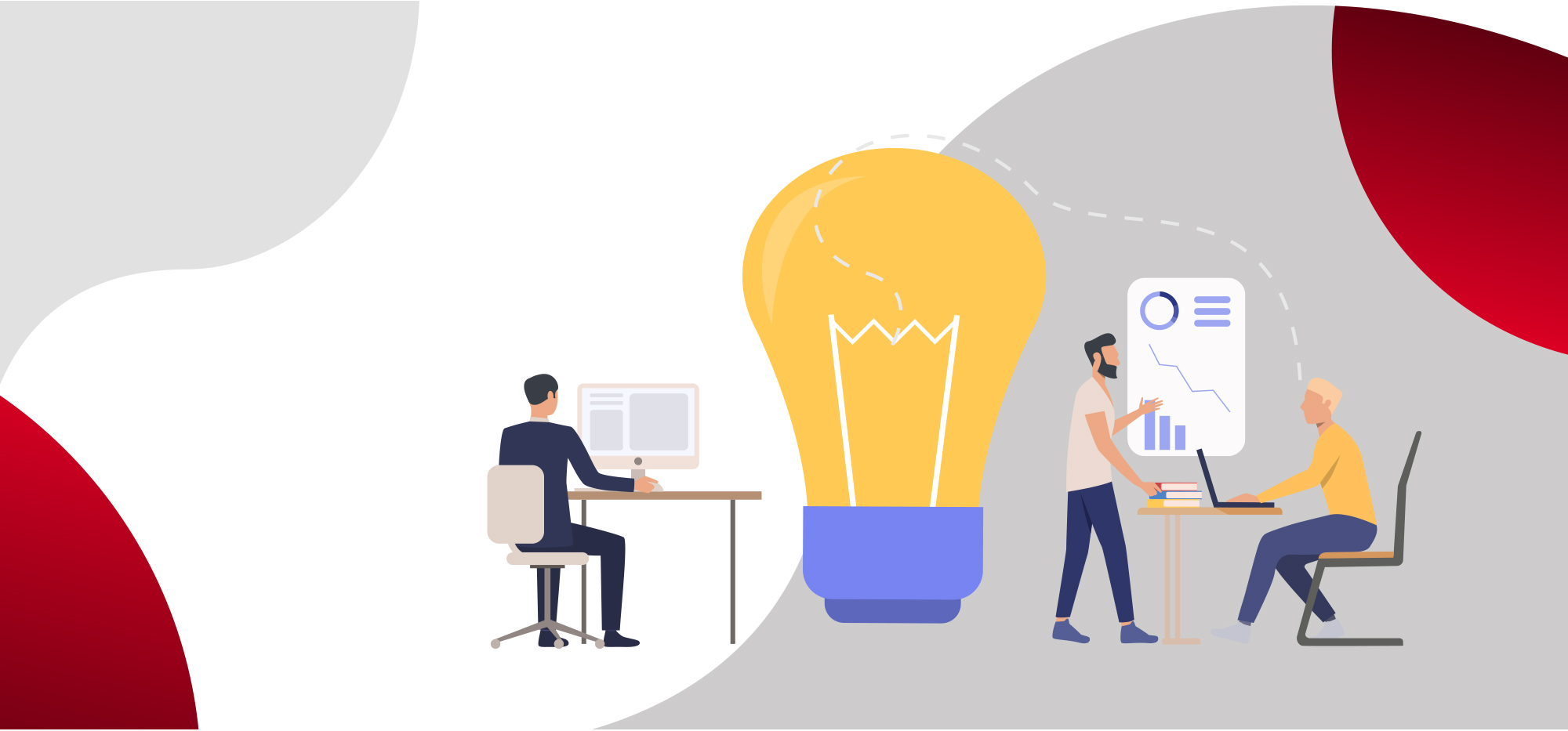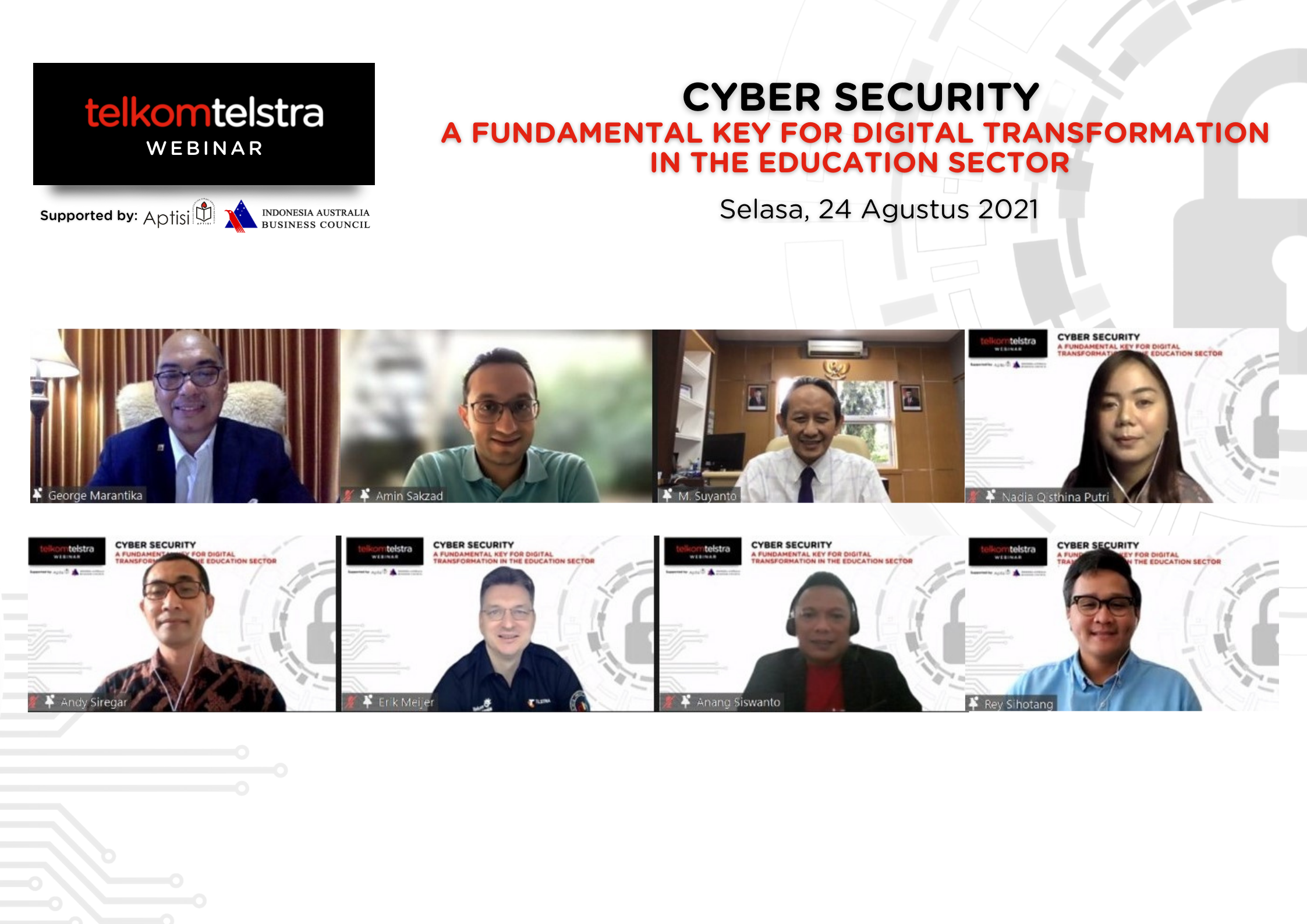JAKARTA, 28th August 2021 – The Covid-19 pandemic which has lasted for about 1.5 years has changed the behavior of everyone’s life. Starting from office activities, production processes in several factories, employee behavior at work to the teaching and learning process both at universities and in schools, from elementary school to high school level.
The massive use of technology must be followed by capable cybersecurity as well as being the fundamental key so that the business can run effectively and efficiently. Then teaching and learning activities can take place without reducing the quality of education for students so that other activities can also run as they should without reducing productivity.
The education sector has been in the spotlight. During the pandemic, teaching and learning activities must be implemented remotely or from students’ homes. This condition forces the education sector to start or continue its activities towards digital transformation.
This issue became the main discussion in the Webinar entitled “Cyber Security: A Fundamental Key For Digital Transformation In The Education Sector” held by Telkomtelstra in collaboration with the Association of Indonesian Private Universities (APTISI) and The Indonesia Australia Business Council (IABC) on Tuesday, August 24, 2021 via the Zoom platform. George Marantika, Vice Chairman of APTISI and National President of IABC acted as moderator for this event.
Erik Meijer, President Director of Telkomtelstra when opening the webinar said that the education sector has changed during the Covid-19 pandemic which has lasted for 1.5 years.
The process of digital transformation is inevitable. Teaching and learning activities that were previously implemented face-to-face, now have to be run virtually through platforms such as Microsoft Teams, Zoom, GoogleClass, and so on. “Therefore, cybersecurity in using those platforms and implementing a secure and capable cloud usage becomes a necessity that cannot be avoided,” he said.
According to Erik, cybersecurity is the responsibility of all parties, including the government, providers, and users therefore teaching and learning process can take place well, according to expectations moreover the quality of education is maintained and students got the benefit from online learning.
On the same occasion, Dr. Amin Sakzad, Senior Lecturer of Software Systems & Cybersecurity, Monash University, Australia explained that Monash University has implemented digital transformation with Cryptography. This system is described for learning methods through online interactions such as Zoom, Webex, Teams, Classroom Learning Platforms (EdSTEM, Moodle). Then for the teaching approach through Gamification and AR/VR. Lastly, for the assessment process through online Assessment platforms, e-Asseessment, Al-driven invigilation.
Previously, lectures were conducted face-to-face with 500-600 students. However, now, it is no longer needed because lectures are conducted online. “The challenge is, we have to be able to deliver lecture material in an interesting, practical and easy to understand way. Not surprisingly, with cryptography, one of the learning methods is through a novel gamification approach,” he explained.
Not only that, Amin added that there are other methods such as flip classes, offline records, haul Q&A workshops which are also run at Monash University. “Of course, behind the implementation of digital transformation, we must also be able to ward off Ransomware, IDS, PenTest and Malware attacks. The key to success lies in how we can maximize data security, organizational security, software security, component security and connection security so that it can run well,” he said.
Anang Siswanto, SM Solutions, IT & Business Analyst Telkomtelstra also conveyed the need for prudence and vigilance for educational institutions that implement digital transformation. Cybersecurity attacks (ransomware cs) against companies that implement digital transformation continue to grow. Based on data from Checkpoint Cyber Security Report 2021 & Cisco 2021 Cyber Security threat trends, it shows that companies have to spend US$20 billion on this attack.
According to Anang, there are two types of attacks that often occurs, they are Phishing Attacks and Trojan Attacks. Both of these attacks cause the organization’s valuable information to be exposed ‘naked’ so that it can be accessed by anyone freely or the data is lost/damaged or can no longer be used by the organization. This can result in the organization losing money or even going bankrupt.
Therefore, to deal with or prevent such attacks, all the cybersecurity measures should be started from themselves or the company’s internal IT team. Insufficient information and knowledge regarding this technological transformation is a key entry point for these attacks. “The principle of caution and vigilance must be the doctrine of each individual in today’s digital era,” he said.
One of them is by maximizing Security features such as using Multi-Factor Authentication (MFA), always backing up data and encrypting all important data and communication lines. “I recommend using a third party for this enterprise security issue. Of course, the provider must have an ISO 27001 certificate, have good experience related to data security and can be trusted,” he said.
Meanwhile, Andy Siregar as Principal Expert Security Strategy, Telkom Indonesia highlighted the side effects of digital transformation that can cause organizations to become more vulnerable to cybersecurity risks.
This is reinforced by survey data from the Ponemon Institute 2020: Cyber Security Awareness Measurement Service where more than 50% of respondents from C-level admit that their organization is very vulnerable. “This data also wants to show that Human is the Weakest link. In other words, the human or individual factor is the weakest point in cyber security efforts,” he said.
Andy added that the modus operandi that often happens is to offer a gimmick in the form of discounts, goods, services or other services that make potential victims tempted and then deceived. It can be via WA, email or a page that turns out to be all fraud (phishing).
“Therefore, the role of organizations and all stakeholders is very important in maintaining cyber security. The key lies in a commitment to a culture of information security. This can be made like a list of “Do’s and Don’ts” that must be obeyed and implemented by all parties involved,” said Andy.
Prof. M Suyanto, Chancellor of AMIKOM University Yogyakarta and Deputy Chair of APTISI also conveyed the importance of cybersecurity for educational institutions. Moreover, the educational institution that he leads has an MSV Studio which collaborates with several companies in Silicone Valley and several Hollywood film studios in producing several animated films.
“Cybersecurity is very important for MSV Studio to protect all data in the creation of animated films, starting from the pre-production, production, post-production, branding and distribution processes. Cyber security is also very important because we have to protect the script or story as the core of a film and also the characters from the film, all of which are stored in digital data formats,” concluded Suyanto.
About Telkomtelstra
Telkomtelstra is a joint venture between PT. Telekomunikasi Indonesia (Telkom Indonesia) which is the largest telecommunications company in Indonesia, with Telstra Corporation Limited (Telstra) which is the leading telecommunications and information services company in Australia. Telkomtelstra provides a portfolio of leading technology products and solutions such as Managed Network Services, Managed Security Services, and Managed Cloud Services to help enhance digital transformation in Indonesia. Through an understanding of the local market as well as experience in providing world-class managed solutions services, Telkomtelstra has succeeded in supporting Indonesian companies to utilize managed solutions services in increasing business efficiency and productivity.
Media Contacts
| Rey Sihotang Head of CEO Office and Corporate Secretary, VP 081389793611 E-Mail: rey.sihotang@telkomtelstra.co.id |


